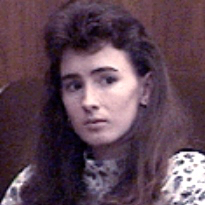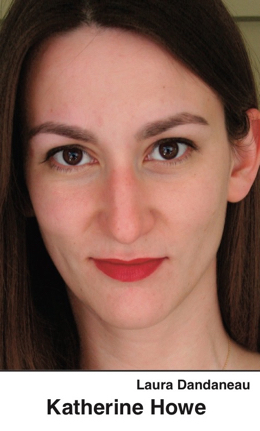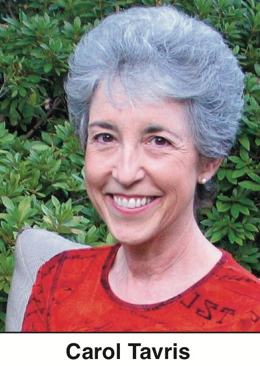Rascals case in brief
In the beginning, in 1989, more than 90 children at the Little Rascals Day Care Center in Edenton, North Carolina, accused a total of 20 adults with 429 instances of sexual abuse over a three-year period. It may have all begun with one parent’s complaint about punishment given her child.
Among the alleged perpetrators: the sheriff and mayor. But prosecutors would charge only Robin Byrum, Darlene Harris, Elizabeth “Betsy” Kelly, Robert “Bob” Kelly, Willard Scott Privott, Shelley Stone and Dawn Wilson – the Edenton 7.
Along with sodomy and beatings, allegations included a baby killed with a handgun, a child being hung upside down from a tree and being set on fire and countless other fantastic incidents involving spaceships, hot air balloons, pirate ships and trained sharks.
By the time prosecutors dropped the last charges in 1997, Little Rascals had become North Carolina’s longest and most costly criminal trial. Prosecutors kept defendants jailed in hopes at least one would turn against their supposed co-conspirators. Remarkably, none did. Another shameful record: Five defendants had to wait longer to face their accusers in court than anyone else in North Carolina history.
Between 1991 and 1997, Ofra Bikel produced three extraordinary episodes on the Little Rascals case for the PBS series “Frontline.” Although “Innocence Lost” did not deter prosecutors, it exposed their tactics and fostered nationwide skepticism and dismay.
With each passing year, the absurdity of the Little Rascals charges has become more obvious. But no admission of error has ever come from prosecutors, police, interviewers or parents. This site is devoted to the issues raised by this case.
On Facebook
Click for earlier Facebook posts archived on this site
Click to go to
Today’s random selection from the Little Rascals Day Care archives….
Click for earlier Facebook posts archived on this site
Click to go to
Today’s random selection from the Little Rascals Day Care archives….
Robin Byrum, youngest of Edenton Seven, recalls brutality at hands of prosecution

PBS
Robin Byrum in 1997
April 29, 2017
Robin Byrum, not long out of high school and pregnant with her first child, went to work at Little Rascals Day Care Center in September 1988. A year later she was in prison under $500,000 bond, charged with 23 counts of child sex abuse. Prosecutors had no credible evidence against her, but they were betting the youngest defendant would implicate Bob Kelly and the others accused.
“I was in the wrong place at the wrong time,” she recalls today in her first interview since charges finally were dropped against her in 1996. “They thought I would tell on the others. That was the only reason I was swept up.”
Now 15 years into her second marriage, she lives in Eastern North Carolina. For her privacy I’m not mentioning her town or married name. “I’ve gone on with my life. It’s turned out well, in spite of all that….”
——-
After months of sporadic questioning she was arrested in January 1990. “Three men from the SBI came to my mother’s house. It was so frightening. They intimidated me. One of them put his foot up on the table and I could see the gun in his ankle holster. He said, ‘I’d hate to see you taken away from that child.’
“Then we went to the police station in Edenton. [SBI agent] Kevin McGinnis said he would give me one more chance to talk. I could hear my baby crying in the next room. When I told him again I didn’t know anything, he was so angry he kicked the desk across the room.”
Along with Betsy Kelly and Dawn Wilson, she was put in a cell in women’s prison in Raleigh. “I was three hours from my only family in North Carolina. Strip-searched before and after every visit.
“They put another prisoner in there with us, a snitch, thinking she could get us to talk. But we had nothing to tell….. One day they even tossed our cell, looking for ‘satanic’ passages marked in our Bibles.”
As the months passed, prosecutors offered Byrum ever more tempting plea deals. In a particularly poignant moment in “Innocence Lost: The Plea” (1997) she explains to Ofra Bikel why she had even turned down a deal offering no active time, but an admission of guilt: “‘That would mean knowing I would not ever have to be separated from my child again. But then I’d have to live with the rest of my life that I [said I] did something when I didn’t do it.’”
In 1990, bond was reduced to a still absurd $200,000 and her grandparents and two aunts in Kentucky managed to pay in time to get her home for Christmas.
Today Byrum, 46, works in health information management. “My office manager knew about the case, but the doctors hadn’t put two and two together until they went to your site. One of them shook his head and said, ‘How did seven people go to prison on something completely unfounded?’ Well, I’m still baffled too….
“How could anyone believe all these things happened? We were a block from downtown, in a building with huge windows and no curtains. Parents walked their 2- and 3-year-olds there, and they dropped by all the time….
“Didn’t a light bulb ever once come on that made somebody use their common sense?”
![]()
Day-care cases rooted in ‘sense of powerlessness’?
 Jan. 17, 2015
Jan. 17, 2015
Q: Do you have a better understanding of why people act the way they do in certain situations?
A: ….Whenever the safety of children is perceived to be in question, we run the risk of responding with emotion rather than reason. Certainly in Salem (where three of her ancestors were accused witches) that was the case. And look at the so-called “satanic ritual abuse” pre-school phenomenon in the early 1980s, which is now seen to have been a tremendous miscarriage of justice. Calls for moderation are dismissed with the assertion that the children have to come first — which, of course, they should.
“But it’s also tempting to read these experiences as expressive of a deeper anxiety about childrearing in an uncertain world, with no guarantees of a good outcome. I feel that it comes from a sense of powerlessness that can’t be expressed elsewhere….”
– From an interview with Katherine Howe, author of “Conversion,” a novel based on a mysterious 2012 outbreak of tics and seizures among teenage girls in upstate New York, in the Daily News of Batavia, New York (Aug. 23, 2014)
You had to have been there (or did you?)
Sept. 25, 2013
“Peer group pressure… is a factor that should be considered when there is an allegation of sexual abuse involving multiple victims. Children in Edenton who never attended the day care, but who had peers who attended, claimed to have been abused at the day care.
“During her testimony for the defense, Dr. Maggie Bruck described a scientific study in which two actors went into a classroom of 28 children to give a talk. During the talk one of the actors knocked a large birthday cake off a piano. Seven children had been removed from the room and did not observe the event. Later when the children were interviewed six of the seven children who had not been present not only claimed to have been there but described the event as if they had been present.”
– From “Evidence Issues and ‘Lessons’ from State v. Kelly: Litigation of Allegations of Child Sexual Abuse” by Jeffrey L. Miller and W. Michael Spivey, presented at the 6th annual North Carolina Criminal Evidence Seminar, UNC School of Law (April 16, 1993)
When imaginary crime leads to real punishment
 Aug. 20, 2015
Aug. 20, 2015
“In the mid-1980s, a friend of mine testified on behalf of an elementary-school teacher who had been accused of being a pedophile.
“A child had told his mother that the teacher had taught them about ‘boobies and dicks’ and had drawn a picture on the blackboard that sounded suspiciously to the mother like an image of an ejaculating penis.
“The police had raced to the classroom and confiscated the damning evidence: several copies of ‘Moby-Dick.’ What the teacher had drawn was a whale and its spout.
“Looking back, we can see that the only boobies involved in this case were the adults. But whenever we are in the midst of a moral panic, as we were in the 1980s, we feel that our alarm is reasonable and that punitive solutions are appropriate.
“Dicks? That child knew the word ‘dicks’? Cancel sex ed! Run that teacher out of town!…”
– From “A Very Model Moral Panic” by Carol Tavris in the Wall Street Journal (Aug. 7)











0 CommentsComment on Facebook